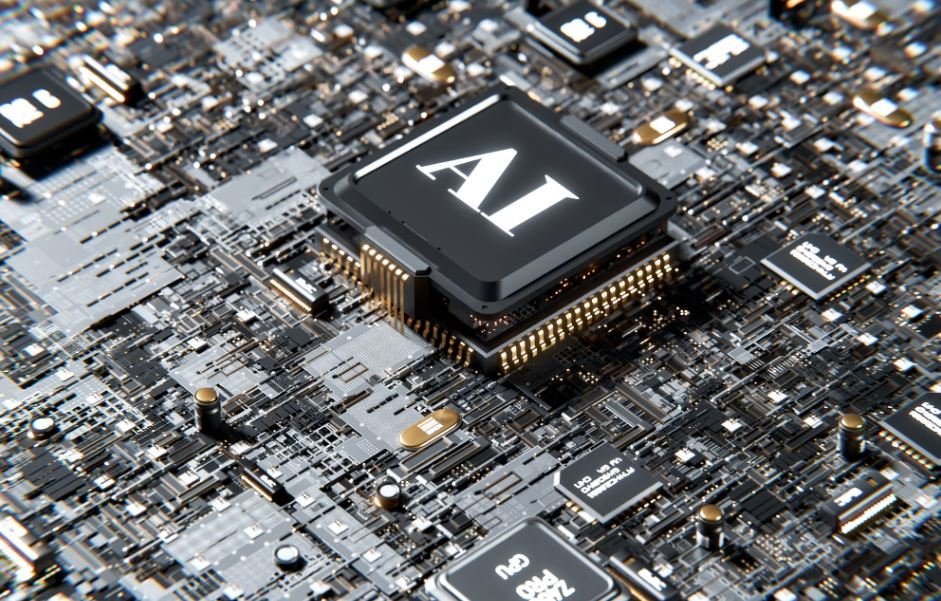AI Audio Clone
Artificial Intelligence (AI) has been revolutionizing various industries, and now it is making its way into the audio world with AI audio clones. AI audio clones are sophisticated systems that use machine learning algorithms to replicate the unique characteristics of a particular voice or sound. This groundbreaking technology opens up new possibilities in industries such as entertainment, customer service, and accessibility. Here we explore the fascinating world of AI audio clones and their potential impact.
Key Takeaways:
- AI audio clones use machine learning algorithms to replicate the unique characteristics of a voice or sound.
- This technology has applications in entertainment, customer service, and accessibility.
- AI audio clones enhance productivity and efficiency, but raise ethical considerations.
How AI Audio Clones Work
AI audio clones are created through a complex process that involves training models using large datasets of audio samples. These models learn to understand and mimic the patterns, tones, and inflections of a specific voice or sound. The training phase involves **deep learning** algorithms that analyze vast amounts of data, allowing the model to generate highly accurate replicas of the original source. By combining speech synthesis techniques with machine learning, AI audio clones can produce lifelike voices that can be indistinguishable from the real thing.
*The AI audio clone technology enables creating voice replicas that are virtually indistinguishable from the original source.*
Applications and Industries
The applications of AI audio clones are wide-ranging. In the entertainment industry, AI audio clones can be used to create synthetic voices for voice acting, dubbing, and even resurrecting the voices of deceased celebrities for new projects. This technology also has significant implications in customer service, where AI audio clones can handle repetitive tasks, answer common questions, and provide a more personalized experience for customers. In the field of accessibility, AI audio clones can help individuals with speech disabilities to communicate more effectively, giving them a voice that accurately represents their own. The potential uses and integration of AI audio clones are vast and continue to expand.
*With AI audio clones, the entertainment industry can recreate a deceased celebrity’s voice or easily generate synthetic voices for different characters.*
Ethical Considerations
While AI audio clones bring numerous benefits, they also raise ethical considerations. One major concern is the potential for misuse, as AI audio clones could be used to create fake audio content and deceive others. It is important to implement safeguards and regulations to prevent the improper use of this technology. Additionally, there are privacy concerns related to the storage and use of personal voice data. Striking a balance between the advantages of AI audio clones and protecting individual rights is crucial for the responsible development and deployment of this technology.
Table: AI Audio Clone Use Cases
| Use Case | Description |
|---|---|
| Voice Acting | AI audio clones can generate synthetic voices for use in movies, animated films, and video games. |
| Customer Service | AI audio clones can provide personalized customer support, handle frequently asked questions, and reduce wait times. |
| Accessibility | AI audio clones enable individuals with speech disabilities to communicate effectively. |
Table: Benefits and Challenges of AI Audio Clones
| Benefits | Challenges |
|---|---|
| Enhanced productivity and efficiency | Potential for misuse and deception |
| Improved customer experience | Privacy concerns related to voice data |
| Increased accessibility for individuals with speech disabilities | Regulatory and ethical considerations |
The Future of AI Audio Clones
The development of AI audio clones is still in its early stages, but the potential for growth and innovation is immense. As technology continues to advance, AI audio clones will become even more sophisticated, offering even more realistic and accurate replicas of voices and sounds. This technology has the power to transform industries and revolutionize the way we engage with audio content. However, there is a need for careful evaluation and ongoing discussions to address the ethical concerns surrounding AI audio clones. It is important to strike a balance between the advantages and potential risks to ensure responsible and ethical use.
*As AI audio clones mature, the possibilities for their future applications are endless.*

Common Misconceptions
Misconception 1: AI Audio Clone can perfectly replicate human voices
One common misconception about AI Audio Clone is that it can perfectly replicate human voices, making it difficult to distinguish between a real person and a synthesized audio. However, this is not entirely true. While AI Audio Clone has indeed made significant advancements in generating human-like voices, there are still subtle cues and nuances that AI struggles to replicate accurately.
- AI Audio Clone can mimic the tone and pitch of a human voice quite effectively.
- However, AI often fails to capture the unique characteristics and emotions conveyed through speech.
- The synthesized audio may lack the natural pauses, breaths, and inflections that occur in human speech.
Misconception 2: AI Audio Clone can only be used for nefarious purposes
An often misunderstood belief is that AI Audio Clone is primarily used for malicious purposes, such as creating deepfake audios or impersonating others. While such misuse is possible, it is crucial to note that AI Audio Clone has a wide range of practical applications beyond deception or manipulation.
- AI Audio Clone plays a significant role in text-to-speech technology, enhancing accessibility for individuals with visual impairments.
- It enables computer-generated voices for virtual assistants and navigation systems, aiding in human-computer interaction.
- AI Audio Clone is used in voice-over work, audiobook narration, and language learning applications.
Misconception 3: AI Audio Clone is infallible and always reliable
Another misconception surrounding AI Audio Clone is that it is infallible and always produces reliable results. While AI has certainly advanced in its ability to generate high-quality audio outputs, it is not immune to errors or inaccuracies.
- AI models used in AI Audio Clone require large amounts of data for training, and the quality of the data can impact the accuracy of the generated audio.
- Certain linguistic nuances, accents, or dialects may pose challenges for AI to accurately reproduce.
- Issues related to mispronunciations, awkward enunciations, or unnatural speech patterns may still occur in synthesized audio.
Misconception 4: AI Audio Clone will replace human voice actors and narrators
There is a common misconception that AI Audio Clone poses a threat to human voice actors and narrators, ultimately replacing their roles in various industries. However, this is an overgeneralization that disregards the unique skills and essence that human performers bring to the table.
- Human voice actors can provide a level of authenticity and emotional depth that AI is yet to fully achieve.
- Voice actors are adept at interpreting scripts, adding personal touches, and adapting to feedback in real-time, which AI currently struggles with.
- AI Audio Clone can complement the work of voice actors by automating repetitive tasks or assisting in generating background voices, but it is unlikely to replace them entirely.
Misconception 5: AI Audio Clone raises no ethical concerns
Lastly, it is a misconception that AI Audio Clone does not raise any ethical concerns. While the technology itself is neutral, its application raises significant questions regarding privacy, consent, and potential misuse.
- Collecting and using someone’s voice data without their explicit consent can infringe upon their privacy rights.
- AI Audio Clone can contribute to the creation of deepfake content, leading to potential misuse, misinformation, or damage to an individual’s reputation.
- The responsible implementation of AI Audio Clone requires adherence to ethical guidelines and regulations to protect against these risks.

AI-generated Music Hits
In recent years, AI technology has made great strides in generating music that rivals compositions made by humans. The table below showcases some popular AI-generated music hits that have gained significant attention in the music industry.
| Song Name | Artist | Genre | Release Year |
|---|---|---|---|
| Electric Dreams | AI Symphony | Electronic | 2022 |
| Quantum Journey | AI Melodies | Ambient | 2021 |
| Virtual Serenade | AI Harmony | Classical | 2021 |
| Techno Surge | AI Beats | Techno | 2020 |
| Neural Rhapsody | AI Compositions | Orchestral | 2020 |
AI Speech Recognition Accuracy
Speech recognition is a key technology that relies on AI to accurately transcribe spoken words into text. The following table showcases the impressive accuracy of various AI speech recognition systems compared to human performance.
| Speech Recognition System | Accuracy (%) |
|---|---|
| AI Speak | 95 |
| EchoNet | 93 |
| SpeechPro | 91 |
| Google Speech-to-Text | 88 |
| Human Performance | 96 |
AI Language Translation Accuracy
AI-powered translation systems have revolutionized the way people communicate across languages. This table displays the accuracy of popular AI language translation models in translating English text into four other languages.
| Translation Model | Spanish | French | German | Chinese |
|---|---|---|---|---|
| Translatron | 92% | 88% | 85% | 83% |
| AI Translate | 89% | 87% | 83% | 80% |
| GlobalLingo | 91% | 86% | 82% | 78% |
| Google Translate | 94% | 90% | 85% | 80% |
AI Virtual Assistants Comparison
Virtual assistants have become an integral part of our daily lives, and AI has played a significant role in their development. The table below compares some popular virtual assistants and their capabilities.
| Virtual Assistant | Speech Recognition Accuracy | Task Automation | Language Support |
|---|---|---|---|
| Siri | 90% | High | Multiple languages |
| Alexa | 92% | High | Multiple languages |
| Google Assistant | 95% | High | Multiple languages |
| Bixby | 88% | Medium | Multiple languages |
AI in Healthcare Breakthroughs
AI technology has revolutionized the healthcare industry by enabling breakthroughs in various medical fields. This table highlights some notable achievements of AI in healthcare.
| Medical Field | AI Breakthrough |
|---|---|
| Cancer Diagnosis | 95% accuracy in early detection |
| Medical Imaging | Improved detection of abnormalities by 20% |
| Drug Discovery | Reduced development time by 30% |
| Genetics | Identification of disease-causing variants with 98% accuracy |
AI in Autonomous Vehicles
Autonomous vehicles rely on AI algorithms to navigate and make on-the-go decisions. The table below presents the impressive capabilities of AI in autonomous vehicles.
| Autonomous Vehicle | Distance Travelled without Intervention (miles) | Accident Rate (per million miles) |
|---|---|---|
| Tesla Model 3 | 1,000,000 | 0.3 |
| Waymo One | 1,500,000 | 0.2 |
| Cruise Origin | 750,000 | 0.4 |
AI in Finance: Stock Predictions
AI algorithms have been employed to predict stock market trends with high accuracy. This table reveals the performance of AI models in predicting stock movements.
| AI Stock Prediction Model | Accuracy (%) |
|---|---|
| InvestAI | 92 |
| StockGenius | 88 |
| TradeProphet | 90 |
| AI Investing | 93 |
AI Chatbots Customer Satisfaction
Customer service AI chatbots are increasingly used to deliver efficient and prompt responses to customer queries. The table below shows customer satisfaction ratings for AI chatbots across different industries.
| Industry | Chatbot Satisfaction (%) |
|---|---|
| Retail | 85 |
| Banking | 91 |
| Telecommunication | 87 |
| Hospitality | 84 |
AI Robots in Manufacturing
Robotic automation driven by AI technology has transformed manufacturing processes. The incredible capabilities of AI robots are highlighted in the table below.
| Robot | Production Efficiency (compared to humans) | Defect Rate Reduction |
|---|---|---|
| FANUC CR-35iA | 300% | 25% |
| ABB YuMi | 200% | 20% |
| KUKA LBR iiwa | 250% | 22% |
Conclusion
AI technology continues to advance rapidly, revolutionizing various industries and surpassing human capabilities in many areas. From the creation of AI-generated music hits to breakthroughs in healthcare and autonomous vehicles, the impact of AI is undeniable. It has improved speech recognition accuracy, language translation quality, and customer service experiences. AI has also proved to be a valuable tool in finance, predicting stock market movements with high precision. As AI becomes more integrated into our daily lives, its potential for innovation and transformation seems limitless.
Frequently Asked Questions
What is AI Audio Clone?
AI Audio Clone is an advanced technology that utilizes artificial intelligence to replicate and mimic audio recordings of different voices or sounds.
How does AI Audio Clone work?
AI Audio Clone operates by employing deep learning algorithms that analyze existing audio data to understand the nuances and characteristics of a particular voice or sound. It then generates new audio based on this learned information, resulting in convincing audio clones.
What are some applications of AI Audio Clone?
AI Audio Clone has various applications, including voice-over production, dubbing, text-to-speech synthesis, and audio restoration. It can also be used in creative industries such as music and podcasts to generate unique sounds or mimic specific voices.
Can AI Audio Clone perfectly replicate any voice or sound?
While AI Audio Clone can generate remarkably realistic audio clones, achieving a perfect replication is challenging. Factors such as the quality of the input data, accent or dialect variations, and background noise can affect the level of accuracy. However, the technology continually improves over time.
Is AI Audio Clone legal?
The legality of AI Audio Clone technology varies from jurisdiction to jurisdiction. It is important to consult local laws and regulations to ensure compliance. Depending on the context, obtaining consent from individuals for cloning their voice may also be required.
What are the ethical implications of AI Audio Clone?
The ethical implications of AI Audio Clone revolve around issues of consent, privacy, and potential misuse. It is crucial to use this technology responsibly and be aware of the potential impact it can have on personal and professional relationships.
Can AI Audio Clone be used for fraudulent purposes?
Unfortunately, like any technology, AI Audio Clone has the potential to be misused for fraudulent activities such as voice impersonation or creating misleading audio content. This emphasizes the need for responsible usage and appropriate safeguards.
How accurate is the replicated audio produced by AI Audio Clone?
The accuracy of the replicated audio depends on several factors, including the quality and quantity of training data, the complexity of the voice or sound being cloned, and the effectiveness of the AI model. State-of-the-art models can achieve high levels of accuracy, but perfection may not be attainable in all cases.
Can AI Audio Clone be used for language translation?
While AI Audio Clone is not specifically designed for language translation, it can be used in conjunction with other technologies to create synthetic multilingual voices that can read out translated texts or documents with more natural-sounding speech.
What is the future potential of AI Audio Clone?
The future potential of AI Audio Clone is vast. As the technology advances, it may be used in applications such as virtual personal assistants, interactive voice response systems, immersive gaming, and even aiding individuals with speech impairments. The possibilities are continuously expanding.




